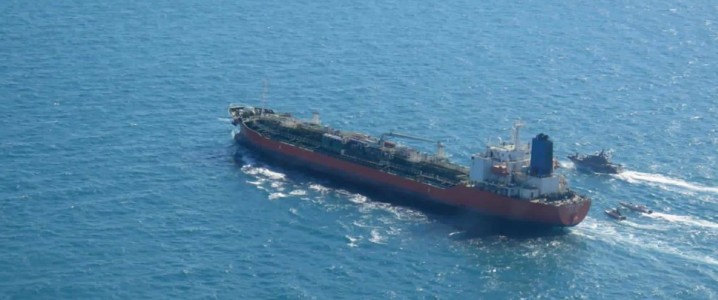Iran has signaled it has no intention to negotiate the release of the South Koran fuel tanker that the Iranian military seized earlier this week in the Strait of Hormuz.
Korean media quoted a statement by the Iranian Foreign Ministry that said there was agreement on “any form of visit” by Korean government officials and that “There is no need for a diplomatic visit,” the Chosun Ilbo reported.
The Islamic Revolution Guards Corps of Iran seized Korean-flagged Hankuk Chemi earlier this week claiming it was polluting the Persian Gulf. It was then delivered to an Iranian port and the crew held.
In response to the move, South Korea sent a 300-strong anti-piracy squad to the Strait of Hormuz and demanded the vessel’s release.
Iran, in turn, said, as carried by the Chosun, “The [Korean] government’s behavior in this regard is not understandable and is rejected.” The Foreign Ministry also urged Seoul to resolve the problem “logically and responsibly.”
The prevailing opinion about Iran’s motive to seize the tanker seems to be that it wants to use it as a bargaining chip in a dispute involving billions in Iranian oil revenues and Korean banks.
After the United States pulled out unilaterally from the so-called Iran nuclear deal, it imposed sanctions on Tehran, specifically targeting its oil industry as a vital source of revenue. As a result, somewhere between $7 and $8 billion in oil revenues held at Korean banks were frozen by the banks, cutting off Tehran’s access to the money.
In December 2019, in an attempt to force Seoul to release the money, Iran slapped South Korea with a bill for $6 billion worth of crude oil deliveries. According to reports at the time, South Korea had deposited the money at two local banks but had not transferred it to Iran because of the U.S. sanctions. Korea, a staunch U.S. ally, refused to budge as it faced punitive action from its ally if it violated sanctions.

